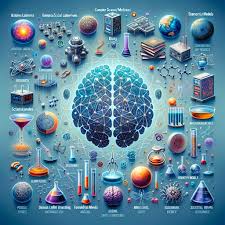Stamp: View of Robert Guillard Research Station, Adelie Land (French territories in the Antarctic 2020)
View of Robert Guillard Research Station, Adelie Land (French territories in the Antarctic 2020)
02 January (French territories in the Antarctic ) within release Robert Guillard Research Station, Adelie Land (2020) goes into circulation Stamp View of Robert Guillard Research Station, Adelie Land face value 1.05 Euro
| Stamp View of Robert Guillard Research Station, Adelie Land in catalogues | |
|---|---|
| Colnect codes: | Col: TF 2020-04a |
Stamp is horizontal format.
stamp from se-tenant pairAlso in the issue Robert Guillard Research Station, Adelie Land (2020):
- Stamp - View of Robert Guillard Research Station, Adelie Land face value 1.05;
- Se-tenant - Robert Guillard Research Station, Adelie Land face value 3.85;
- Stamp - Map of Robert Guillard Research Station, Adelie Land face value 2.80;
Stamp View of Robert Guillard Research Station, Adelie Land it reflects the thematic directions:
A building or edifice is a structure with a roof and walls standing more or less permanently in one place, such as a house or factory. Buildings come in a variety of sizes, shapes and functions, and have been adapted throughout history for a wide number of factors, from building materials available, to weather conditions, to land prices, ground conditions, specific uses and aesthetic reasons. Buildings serve several needs of society – primarily as shelter from weather, security, living space, privacy, to store belongings, and to comfortably live and work. A building as a shelter represents a physical division of the human habitat (a place of comfort and safety) and the outside (a place that at times may be harsh and harmful).
A flag is a piece of fabric (most often rectangular or quadrilateral) with a distinctive design that is used as a symbol, as a signaling device, or as decoration. The term flag is also used to refer to the graphic design employed, and flags have since evolved into a general tool for rudimentary signalling and identification, especially in environments where communication is similarly challenging (such as the maritime environment where semaphore is used). National flags are patriotic symbols with varied wide-ranging interpretations, often including strong military associations due to their original and ongoing military uses. Flags are also used in messaging, advertising, or for other decorative purposes. The study of flags is known as vexillology, from the Latin word vexillum, meaning flag or banner.
Science is a systematic discipline that builds and organises knowledge in the form of testable hypotheses and predictions about the universe.Modern science is typically divided into two or three major branches: the natural sciences (e.g., physics, chemistry, and biology), which study the physical world; and the behavioural sciences (e.g., economics, psychology, and sociology), which study individuals and societies.The formal sciences (e.g., logic, mathematics, and theoretical computer science), which study formal systems governed by axioms and rules, are sometimes described as being sciences as well; however, they are often regarded as a separate field because they rely on deductive reasoning instead of the scientific method or empirical evidence as their main methodology. Applied sciences are disciplines that use scientific knowledge for practical purposes, such as engineering and medicine



